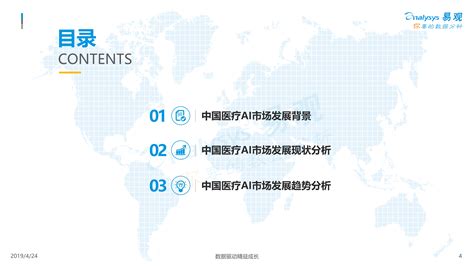大数据在医疗行业的未来发展
```html
The Future of Healthcare Driven by Big Data
In the contemporary landscape, the convergence of big data and healthcare has revolutionized the industry, offering unprecedented opportunities to enhance patient care, optimize operational efficiency, and drive medical advancements. Here's an insightful exploration into the transformative potential of big data in shaping the future of healthcare:

Big data analytics empower healthcare providers with comprehensive insights derived from vast volumes of structured and unstructured data, including patient records, medical imaging, genomic sequences, and realtime monitoring devices. By leveraging advanced analytics and machine learning algorithms, clinicians can make more accurate diagnoses, predict disease progression, and customize treatment plans tailored to individual patients.
One of the most promising applications of big data in healthcare is predictive analytics, which enables early detection of diseases and identification of atrisk populations. By analyzing historical patient data and demographic trends, healthcare organizations can anticipate potential health issues, implement preventive interventions, and allocate resources more effectively to mitigate risks and reduce healthcare costs.
Big data analytics play a pivotal role in the advancement of personalized medicine, allowing healthcare practitioners to deliver targeted therapies based on patients' unique genetic profiles, lifestyle factors, and treatment responses. Through genetic sequencing and biomarker analysis, precision medicine holds the promise of optimizing treatment outcomes, minimizing adverse reactions, and maximizing therapeutic efficacy.
From optimizing hospital workflows to streamlining supply chain management, big data analytics drive significant improvements in healthcare operational efficiency. By analyzing data on patient flow, resource utilization, and staffing patterns, healthcare administrators can identify bottlenecks, allocate resources strategically, and enhance the overall quality of care delivery while minimizing costs.
Big data enables healthcare organizations to adopt a population health management approach, focusing on improving the health outcomes of entire patient populations rather than individual patients. By aggregating and analyzing data from diverse sources, including electronic health records, claims data, and social determinants of health, providers can identify highrisk cohorts, design targeted interventions, and implement preventive strategies to promote wellness and reduce healthcare disparities.
The utilization of big data in healthcare extends to research and development, accelerating the pace of medical innovation and drug discovery. By analyzing vast datasets encompassing clinical trials, genomic data, and patient outcomes, researchers can identify novel therapeutic targets, optimize drug formulations, and expedite the development of breakthrough treatments for various diseases, including cancer, neurological disorders, and rare genetic conditions.
While big data holds immense potential to revolutionize healthcare, it also raises significant ethical and regulatory challenges related to patient privacy, data security, and algorithmic bias. Healthcare organizations must prioritize data governance practices, ensure compliance with stringent regulations such as HIPAA (Health Insurance Portability and Accountability Act), and uphold principles of transparency and equity to safeguard patient rights and foster trust in datadriven healthcare systems.
Looking ahead, the future of healthcare driven by big data is poised for continued innovation and transformation. Emerging technologies such as blockchain, Internet of Medical Things (IoMT), and quantum computing hold the potential to further enhance data interoperability, facilitate secure data sharing, and unlock new frontiers in predictive analytics and precision medicine. However, realizing the full potential of big data in healthcare requires ongoing collaboration among stakeholders, investment in digital infrastructure, and a concerted effort to address the evolving ethical, legal, and social implications.
In conclusion, the integration of big data analytics into healthcare holds the promise of revolutionizing patient care, optimizing operational efficiency, and driving medical breakthroughs. By harnessing the power of datadriven insights, healthcare stakeholders can advance towards a future where personalized, preventive, and participatory medicine is the cornerstone of healthcare delivery.
